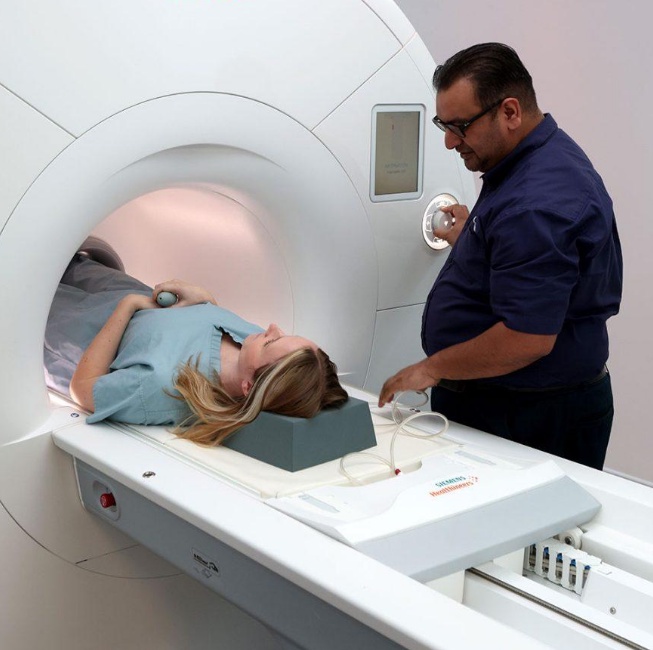Introduction
Magnetic Resonance Imaging (MRI) is a vital diagnostic tool in modern medicine, offering detailed insights into the human body's anatomy and function. Among the leading manufacturers of MRI scanners, Philips has a well-established reputation for innovation and quality in the healthcare industry. Philips offers a range of MRI scanner models, each designed to meet specific clinical needs and applications. In this comprehensive article, we will explore and compare various Philips MRI scanner models, highlighting their key features, strengths, and suitability for different medical specialties. Whether you are a healthcare administrator looking to invest in advanced MRI technology or a clinician seeking the right tool for your practice, this guide will help you make an informed decision.
Philips MRI Scanner Models
Philips Healthcare offers a diverse portfolio of MRI scanner models, catering to a wide spectrum of clinical applications and patient needs. Some of the notable Philips MRI scanner models include:
Philips Ingenia 1.5T MRI: The Philips Ingenia 1.5T MRI scanner is designed to deliver high-quality imaging across various clinical domains. With its wide-bore design and advanced imaging capabilities, it's suitable for neuroimaging, musculoskeletal imaging, cardiac imaging, and more.
Philips Ingenia 3.0T MRI: The Ingenia 3.0T MRI scanner offers enhanced signal strength, making it ideal for applications requiring high-resolution images. It excels in neuroimaging, oncology, and research studies.
Philips Ingenia Elition 3.0T MRI: The Ingenia Elition 3.0T MRI scanner takes imaging to the next level with features like Compressed SENSE technology, which accelerates scan times without compromising image quality. It is particularly valuable for complex cardiac and neuroimaging studies.
Philips Ingenia Ambition X 1.5T MRI: The Ingenia Ambition X 1.5T MRI scanner focuses on sustainability by reducing energy consumption and helium usage. It's an eco-friendly option for various clinical applications.
Philips Ingenia Prodiva 1.5T MRI: The Ingenia Prodiva 1.5T MRI scanner combines affordability with excellent image quality, making it an attractive option for facilities seeking cost-effective solutions.
Comparing Philips MRI Scanner Models
To help you choose the right Philips MRI scanner model, let's compare them based on various factors:
1. Magnetic Field Strength:
Ingenia 1.5T: Offers a 1.5 Tesla magnetic field strength, suitable for a wide range of clinical applications with high-quality imaging.
Ingenia 3.0T: Provides a stronger 3.0 Tesla magnetic field, which enhances image resolution and signal-to-noise ratio, making it ideal for advanced neuroimaging and research.
Ingenia Elition 3.0T: Also features a 3.0 Tesla magnetic field and includes advanced Compressed SENSE technology for accelerated imaging without compromising quality.
Ingenia Ambition X 1.5T: Offers a 1.5 Tesla magnetic field while prioritizing sustainability and reduced energy consumption.
Ingenia Prodiva 1.5T: Provides a 1.5 Tesla magnetic field strength, balancing affordability with good image quality.
2. Clinical Applications:
Ingenia 1.5T and 3.0T: Both models support a wide range of clinical applications, including neurology, musculoskeletal imaging, cardiovascular imaging, and abdominal imaging.
Ingenia Elition 3.0T: Particularly suitable for advanced cardiac and neuroimaging studies, thanks to its high field strength and Compressed SENSE technology.
Ingenia Ambition X 1.5T: Designed for general clinical use with a focus on sustainability.
Ingenia Prodiva 1.5T: Offers versatility for various clinical applications while being cost-effective.
3. Advanced Features:
Ingenia 1.5T and 3.0T: Equipped with Philips' Ingenia technology, ensuring high image quality and patient comfort. They also support various advanced imaging techniques.
Ingenia Elition 3.0T: Includes Compressed SENSE for faster scanning, Ingenia's dStream digital broadband technology, and MultiTransmit technology for body imaging.
Ingenia Ambition X 1.5T: Focuses on sustainability with BlueSeal magnet technology, reducing the need for helium refills and energy-efficient imaging.
Ingenia Prodiva 1.5T: Offers a cost-effective solution with good image quality and essential advanced features.
4. Patient Experience:
**All Philips MRI scanner models prioritize patient comfort and experience with features like a wide bore, quiet scans, and ambient lighting in the examination room.
5. Efficiency:
Ingenia Elition 3.0T: Stands out for its efficiency due to Compressed SENSE technology, which shortens scan times while maintaining image quality.
Ingenia Ambition X 1.5T: Emphasizes efficiency with reduced energy consumption and simplified workflow.
6. Customization:
All models offer customization options to tailor imaging protocols to the specific needs of the facility and clinical specialties.
7. Affordability:
Ingenia Prodiva 1.5T: Designed to be cost-effective, making it an attractive option for facilities with budget constraints.
Factors to Consider When Choosing a Philips MRI Scanner Model
Selecting the right Philips MRI scanner model should be based on several key factors:
1. Clinical Needs: Assess the specific clinical needs of your facility and the types of exams you will perform most frequently. The field strength, image quality, and advanced features should align with your clinical requirements.
2. Budget: Consider your budget constraints and the total cost of ownership, including not only the purchase price but also ongoing maintenance and operational costs.
3. Patient Volume: Evaluate the expected patient volume to ensure that the scanner can handle your facility's workload efficiently.
4. Technologist Training: Ensure that your MRI technologists are adequately trained to operate and maximize the potential of the chosen scanner.
5. Integration: Confirm that the MRI scanner integrates seamlessly with your facility's existing IT infrastructure, including PACS and EHR systems.
6. Future Growth: Consider future expansion plans and how the chosen MRI scanner model can accommodate your facility's growth.
Conclusion
Philips offers a comprehensive range of MRI scanner models designed to meet diverse clinical needs while prioritizing patient comfort, image quality, and efficiency. The choice of the right Philips MRI scanner model depends on your facility's specific requirements, budget, and growth plans. Whether you prioritize advanced imaging capabilities, sustainability, cost-effectiveness, or a balance of these factors, Philips has a model to fit your needs. Ultimately, by carefully assessing your clinical requirements and considering the features and strengths of each Philips MRI scanner model, you can make an informed decision that enhances the diagnostic capabilities of your healthcare facility.


No comments yet